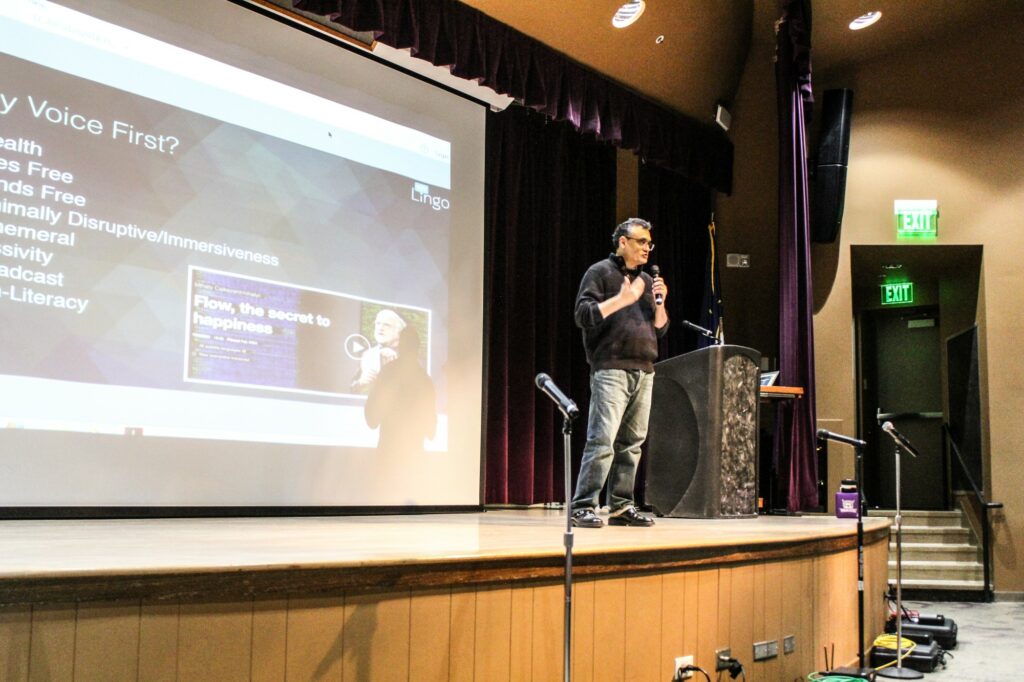Representatives from Amazon, Google, Comcast and several other telecom companies gathered at Weber State University on January 25 and 26 for the inaugural Lingofest, an annual voice-command technology conference.

Philip Hunter, head of User Experience for Alexa Skills at Amazon, began the conference by discussing the current state of voice-command technology and what consumers can expect from Alexa moving forward.
Hunter said Amazon is currently working on technology that will allow Alexa to remember commands long-term in order to give context to her answers. In other words, she will develop real relationships with users.
“This concept of how time plays into conversation is really big,” Hunter said. “Alexa doesn’t really keep track, in a real sense, of what you said two minutes ago or two days ago. She can store that information if you manually set your preferences that way, but she wouldn’t be able to tell you when you made that change.”
Dr. Ahmed Bouzid, founder and CEO of Witlingo and Lingofest, wrote “the aim of the conference is to promote interdisciplinary, cross-pollinated dialogs and conversations between technology practitioners, consumers, students, writers, academicians in the arts, the humanities and the social sciences, entrepreneurs and investors in information technology.”
Oscar Merry, co-founder and Chief Technology Officer at Opearlo, a London-based voice-command service company, explained how he and his partner got into the industry and what tech enthusiasts could expect should they decide to start a technology based business.
“It’s actually so quick and easy to build a basic demo of a voice interaction on Alexa. You can put something together in a couple of hours or half a day. It means you can spark people’s imaginations about what’s possible,” Merry said.
Merry explained Alexa had not been introduced to the U.K. until 2016. He said while taking tech executives on a demo tour showcasing virtual reality and voice-commands, without fail the most exciting technology to them was Alexa.
Addressing concerns about Alexa’s “always listening” feature, Hunter explained Amazon’s approach to privacy.
“We’re only listening for one word: Alexa. There’s a loop in the device that essentially asks, ‘did I hear Alexa? Did I hear Alexa? Did I hear Alexa?’ Once a ‘yes’ kicks out, it begins recording.”
Hunter said there are sometimes false positives, which Amazon is continuing to work on, but the company is explicitly not recording anything unless the word “Alexa” is spoken.
Citing Clifford Nass, a professor of communication at Stanford University, Hunter claimed we are incapable of treating any machine, artificial intelligence-based or not, as anything other than a person.
Hunter said this is central to Amazon’s approach to its Alexa technology.
“Sometimes we talk about Alexa as an intimate technology, as in a technology that is around us constantly,” Hunter said. “The intent is to build comfort and trust with Alexa, much like one would build with a member of their family.”














